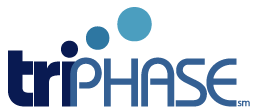 TORONTO and SAN DIEGO, (April 22, 2015) — Triphase Accelerator Corporation, a private drug development company dedicated to advancing novel compounds through Phase II proof-of-concept, today announced that it has initiated a Phase I proof-of-concept clinical study of marizomib. The study is evaluating an intravenous (IV) formulation of marizomib, a novel and highly potent proteasome inhibitor, in combination with bevacizumab (Avastin®) in patients with glioblastoma, the most common and aggressive malignant primary brain tumor.
TORONTO and SAN DIEGO, (April 22, 2015) — Triphase Accelerator Corporation, a private drug development company dedicated to advancing novel compounds through Phase II proof-of-concept, today announced that it has initiated a Phase I proof-of-concept clinical study of marizomib. The study is evaluating an intravenous (IV) formulation of marizomib, a novel and highly potent proteasome inhibitor, in combination with bevacizumab (Avastin®) in patients with glioblastoma, the most common and aggressive malignant primary brain tumor.
The study is recruiting and enrolling patients at the UC Irvine Health Comprehensive Brain Tumor Program at the University of California, Irvine, with Daniela Bota, M.D., Ph.D., and at The Preston Robert Tisch Brain Tumor Center at Duke University Hospital with Annick Desjardin, M.D.
“Glioblastoma is a highly aggressive brain tumor that is innately resistant to multiple treatment modalities. New treatment options are urgently needed because only modest advances in treatment have occurred in the past 25 years,” said Dr. Bota, clinical investigator of the Phase I study, and associate professor of neurology and medical director of the UC Irvine Health Comprehensive Brain Tumor Program. “Our previous studies have shown that the proteasome pathway plays a vital role in the physiology of glioblastoma and that targeting the proteasome in glioma cells is associated with significant anti-tumor activity. This Phase I study with marizomib and bevacizumab should provide important information about the safety of this new combination therapy, as well as the benefit of targeting the proteasome pathway and new blood vessel formation with the anti-angiogenesis agent in patients with this uniformly fatal cancer.”
The open-label, multicenter, dose-escalation Phase I study is evaluating the safety and efficacy of the combination of marizomib and bevacizumab for the treatment of WHO Grade IV malignant glioma. The study population includes subjects who are in first or second relapse and who have not previously received any bevacizumab or other anti-angiogenic agent or proteasome inhibitor. If successful, the study will support the design of a larger-scale proof-of-concept study.
“The initiation of this Phase I clinical study is an important milestone in the clinical development program evaluating marizomib to treat glioblastoma,” said Mohit Trikha, Ph.D., chief scientific officer, executive vice president and head of R&D at Triphase. “Preclinical studies suggest that targeting the proteasome pathway may be an important approach for treating glioblastoma. We believe that marizomib, a potent proteasome inhibitor, has great potential as a treatment for glioblastoma because of its ability to readily penetrate the blood brain barrier, unlike the other proteasome inhibitors that are currently approved to treat multiple myeloma.”
Triphase is conducting the study as part of a Phase I clinical development program with Celgene Corporation, with which it entered into an expanded strategic collaboration in October 2014.
About Triphase
Triphase is a private drug development company with a primary focus on oncology and with operations in Toronto and San Diego. Triphase is dedicated to advancing novel compounds through Phase II proof-of-concept clinical studies using a unique, science-based, high-quality model that is faster and more cost-effective than traditional pharmaceutical and biotech industry drug development approaches. Triphase was spun out of the Ontario Institute for Cancer Research (OICR), with support from MaRS Innovation and MaRS, and has a strategic relationship with Celgene for oncology-focused drug development opportunities.

